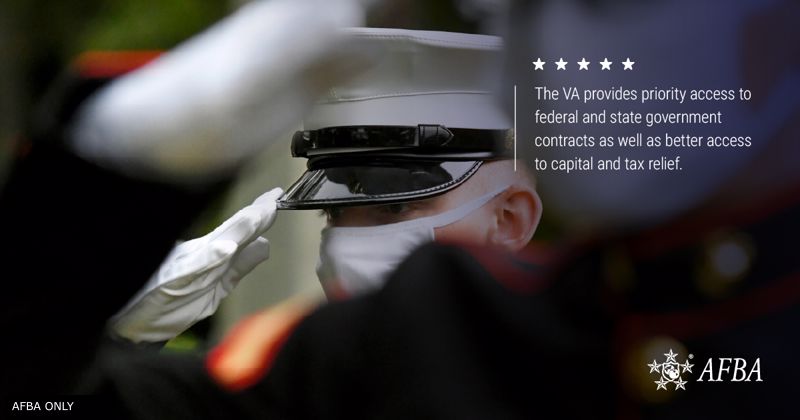Small businesses are the backbone of the American economy, and veteran-owned and -operated businesses make up a sizable chunk of these companies. There are 2.52 million businesses in the U.S. that are majority-owned by veterans, according to the Small Business Administration (SBA). Of these, 442,485 veteran-owned businesses have employees and 2.08 million are run by self-employed veterans without other staff.
In recognition of the service and sacrifices these veterans made for the country, the government offers their companies a variety of benefits. Small businesses owned and operated by veterans have many options for accessing support through agencies like the U.S. Department of Veterans Affair (VA) and the SBA.
Does the company qualify as a Veteran-Owned Small Business (VOSB)?
To receive VOSB benefits, a company must meet certain requirements as defined by the VA. Among these requirements, the veteran must own 51% or more of the small business and hold the highest officer position with full control over its daily management, decision-making and strategic policy. In addition, if the veteran isn't the highest-paid person in the company, they must provide a written statement explaining why a lower salary helps the company.
Service-disabled veteran-owned small businesses (SDVOSB) also qualify for benefits. The company must follow the same criteria as a VOSB, with the veteran having a VA-issued disability letter confirming a service-connected disability rating between 0 and 100%, or a disability determination from the Department of Defense (DOD).

VA Benefits
One of the main incentives for VOSBs and SDVOSBs is the ability to do business with the VA. The VA sets aside a sizable portion of its contracts for these types of businesses. Federal law provides unique authority for the VA to offer VOSBs and SDVOSBs set-aside and sole-source contracts. This means the only businesses that can bid on these contracts are those owned by veterans who qualify for the program.
The VA provides priority access to federal and state government contracts as well as better access to capital and tax relief. The administration also provides support in finding VA procurement, contract awards and acquisition awards. In addition, the VA offers resources, education and training to help veteran owners learn more about doing business with the agency.
SBA Benefits
The SBA also offers a wide range of benefits, opportunities and services for VOSBs and SDVOSBs. The administration set up the Office of Veterans Business Development (OVBC), which is exclusively dedicated to promoting veteran entrepreneurship. The OVBC has several initiatives to accomplish this goal.
Much like the VA, the SBA also gives procuring agencies the authority to set aside contracts exclusively for competition amongst SDVOSBs.
The Boots to Business and Boots to Business Reboot programs offer education, training and guidance for applicable business ownership fundamentals. The Women Veteran Entrepreneurship Training Program (WVETP) provides training for women who are veterans, service members and spouses of service members and veterans. Both of these programs are useful for those owners just getting started, and for established owners looking to gain new business insights.
The Veteran Federal Procurement Entrepreneurship Training Program (VFPETP) is a veteran-focused program that specifically addresses federal procurement. With government contracting already providing great business avenues for veterans, becoming trained and certified to go this route can help grow a VOSB.
The SBA also offers the Veterans Advantage 7(a) loan, one of the administration's most popular programs. This type of business loan comes with reduced fees for veterans who qualify.
These are just some of the many benefits and incentives offered for veteran-owned small businesses. Many other agencies and departments also make VOSBs and SDVOSBs a priority for contracting and acquisitions.

